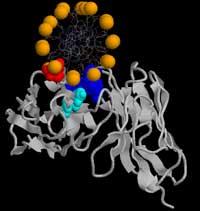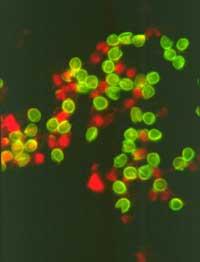Immune system

The first barrier against aggressors is a non-specific immune response, very important for its protection against infections and cancer. The cells involved in this response are the so-called neutrophils, macrophages and natural killer or natural killers. Once a foreign element is detected, these cells go to it, assimilate it and destroy it.
Although the unspecific immune response protects a lot, sometimes the aggressors manage to overcome this barrier. Then the specific response is launched. This response is only launched against aggressors that the body already knows. These attackers are called antigens and the immune system generates specific antibodies against them by lymphocytes.

In addition to protecting against external aggressors, the immune system removes cancer cells that appear in the body itself. Other times it is the immune system itself that produces diseases, for example, when it responds to substances that are not harmful by themselves, such as plant pollen or some component of food. And it can happen that it also reacts to some component of the body itself, that is, that the protection system becomes anti-body.
On the other hand, uncontrolled cell proliferation of the immune system causes cancer. The most common is leukemia.
Text prepared for the radio program Norteko Ferrokarrilla.
Buletina
Bidali zure helbide elektronikoa eta jaso asteroko buletina zure sarrera-ontzian











